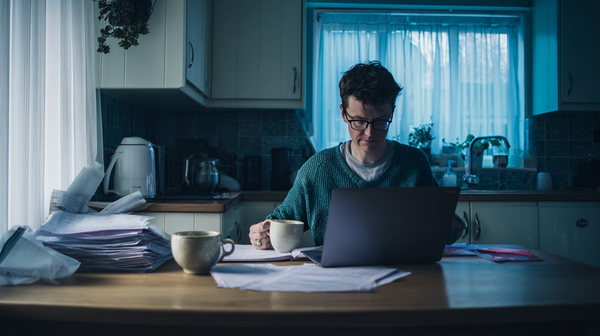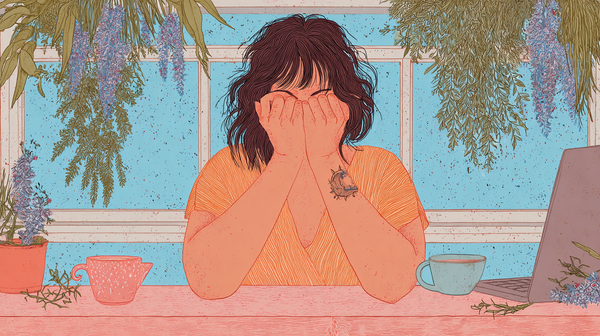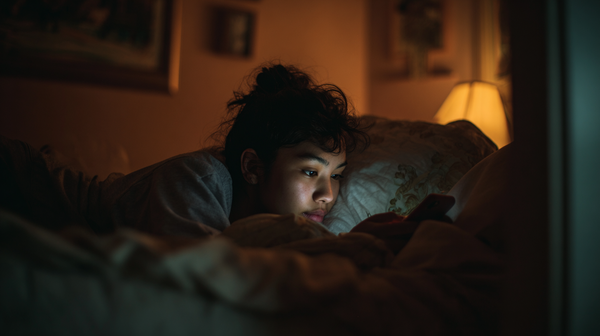The Feeling That Isn't There: Why Emotional Numbness Is the Mental Health Crisis We're Not Talking About 🤐
We talk about anxiety and ADHD—but what about numbness? This overlooked emotional shutdown is quietly taking over. Here's why it matters, and how we find our way back.
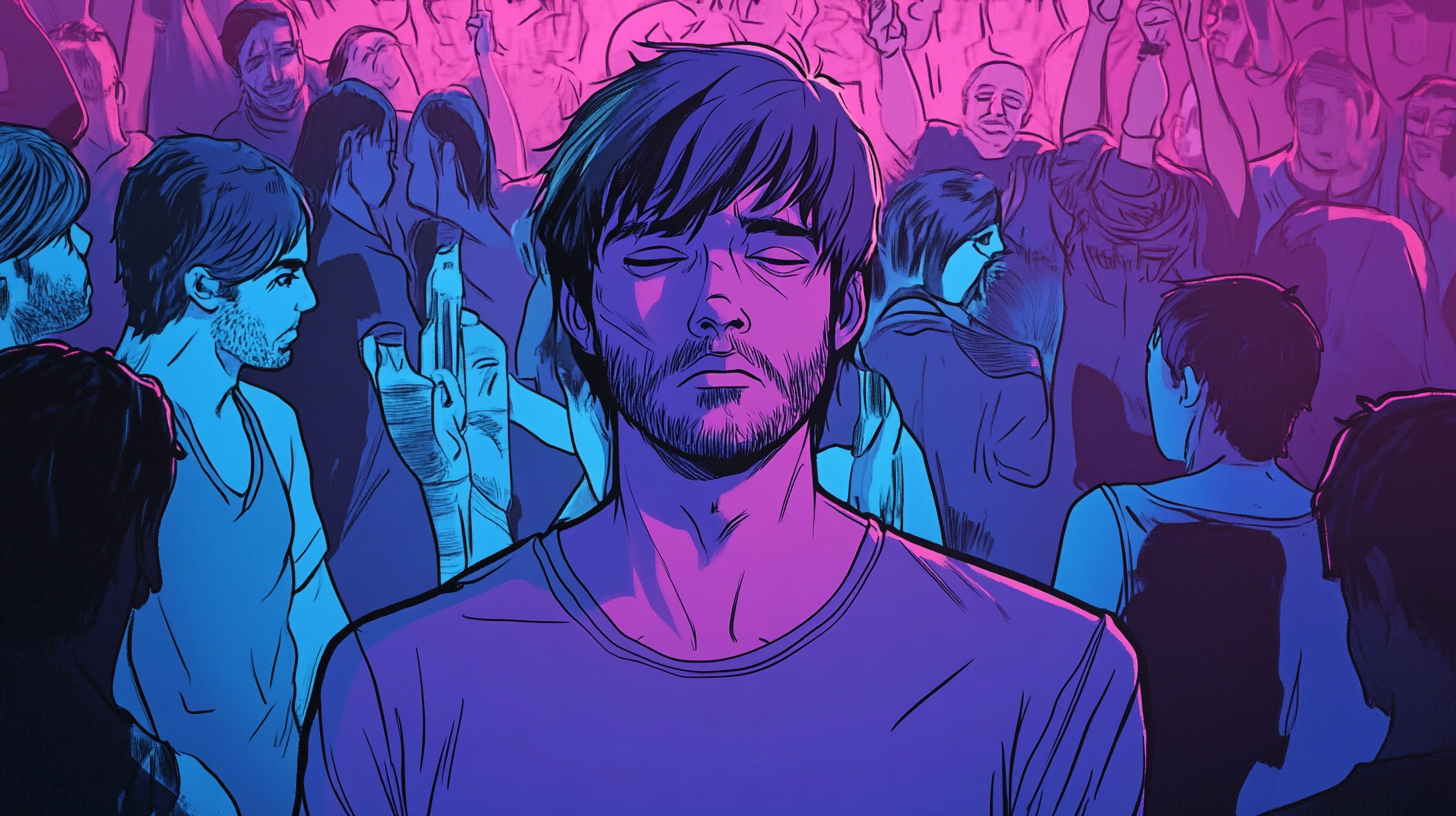

You're lying in bed, thumb grazing glass, half-scrolling, half-dissociating. Another carousel on ADHD hacks. Another tearful reel about anxiety. Another talking head explaining trauma. The internet is flooded with feeling. Everyone is overwhelmed, overstimulated, overdiagnosed. Everyone, it seems, is melting down.
But not you. You're not spiralling. You're not anxious. You're not even sad. You're just... not much of anything.
You haven't cried in years. Nothing really excites you. You show up, you nod along, you "like" the right posts. But inside? It's mostly static. And that - whatever that is - never makes it into the mental health discourse.
We're good at naming what we feel too much of: stress, panic, shame. We're less fluent when the feeling is absence. Emotional numbness doesn't trend. It doesn't perform well. It doesn't generate hashtags or teletherapy ads. But it's quietly endemic - especially among men.
This isn't just burnout. It isn't laziness or apathy or some personal failing. It's a psychological dead zone. It’s what happens when the system meant to help us feel and respond and connect gets so overloaded that it shuts itself down.
And it matters. Because while strong emotions can drive us to act, the absence of feeling can be far more dangerous. Without guilt, there's no conscience. Without fear, no restraint. Without connection, no reason to care.
That’s why in this week’s Brink, I’m exploring what numbness is, why it shows up, and how it quietly shapes everything from isolation to violence to the hollow scroll we mistake for rest. If anxiety is the loud warning bell, numbness is the silent leak in the hull.
And it's time we started listening to it.
Defining Emotional Numbness: When Nothing Feels Real 🫥
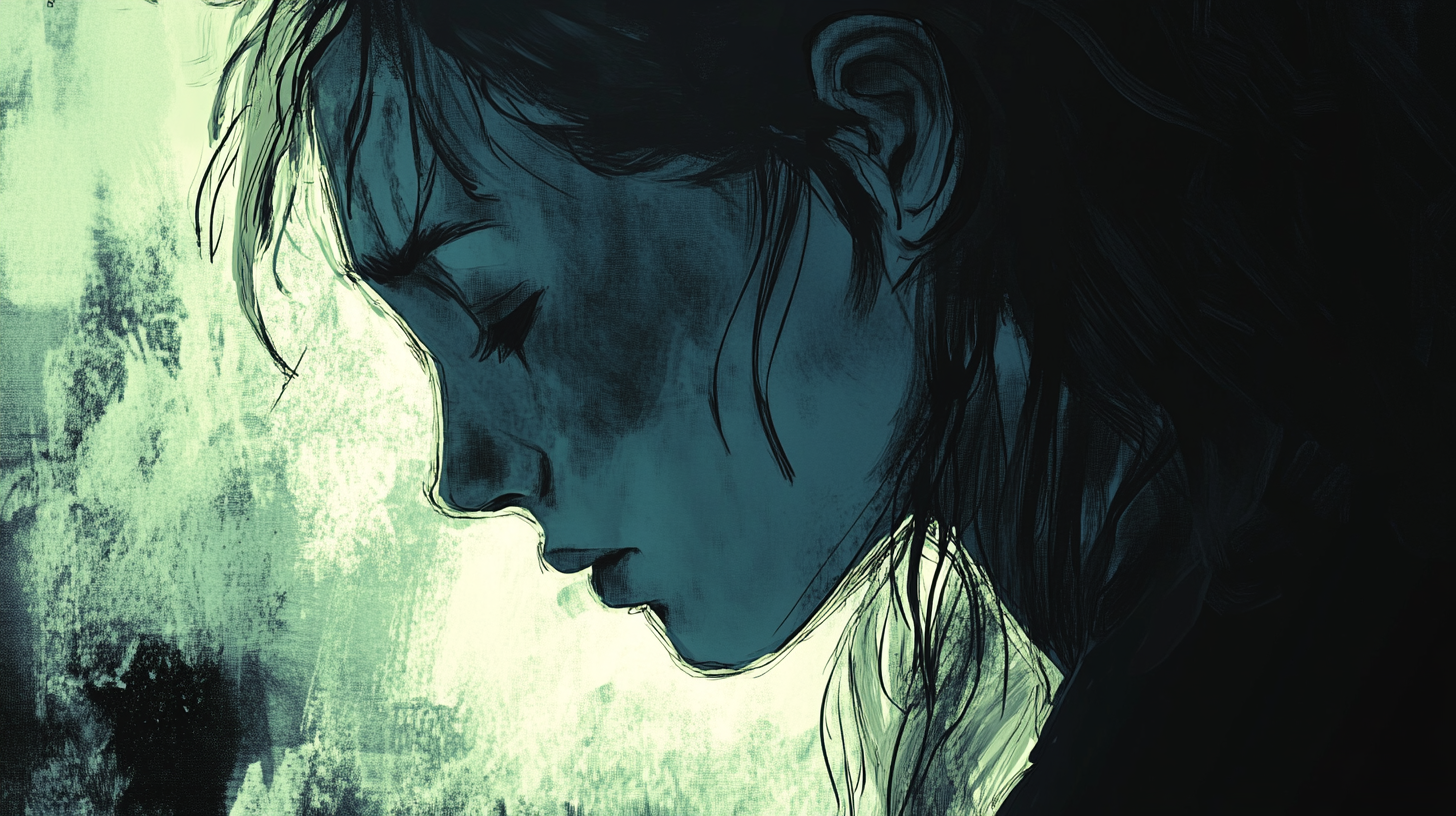
Imagine scrolling through TikTok, where ADHD memes and anxiety tips swim past your thumb, yet you feel... nothing. No panic. No spark. Just a dull echo.
That's emotional numbness, or emotional blunting as it’s called in mental health circles. Some people call it ‘languishing’ or ‘ambivalence’ or’ dis-assocation,’ but they all lead back to the same idea. It’s when feelings go quiet, and life feels muffled. As Healthline explains, numbness means "limited emotional responses to internal and external events," producing "isolation or disconnect from the rest of the world". It's like watching others live through a pane of distorted glass.
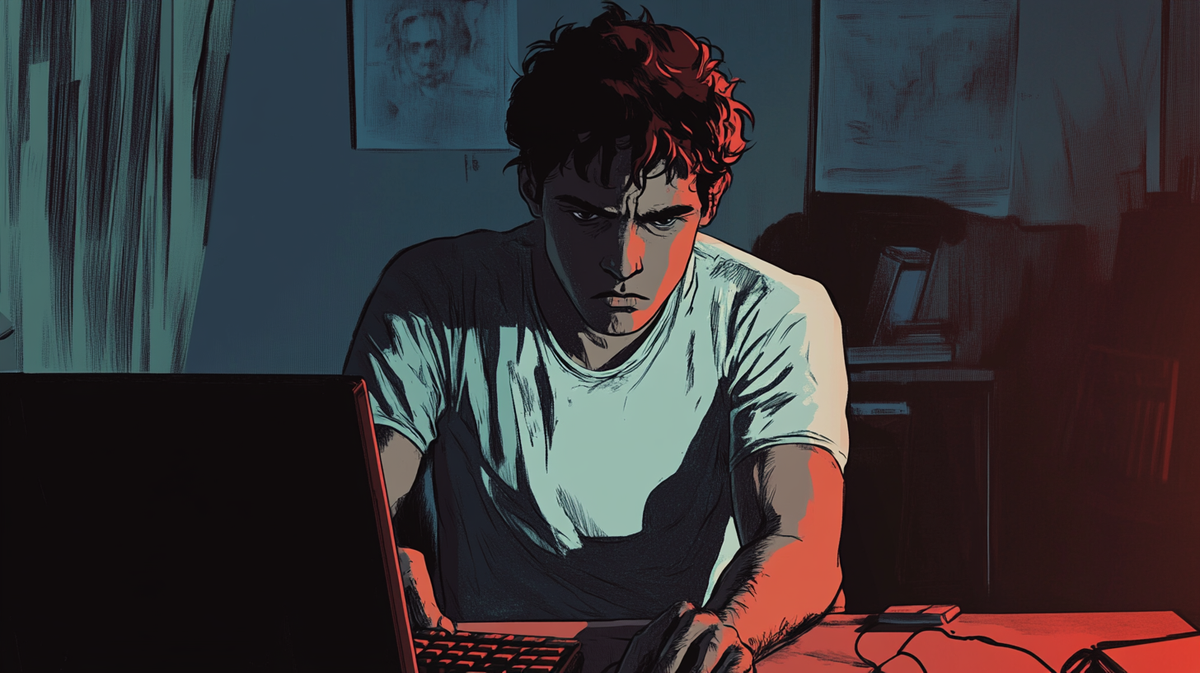
How numbness shows up:
- Persistent fatigue or lack of motivation
- Zero interest in things that once made you interested in the world.
- A flatness in mood or facial expression
- Difficulty recognising or naming emotions
- Feeling detached-from yourself, from friends, even from the world around you
There is a term for this that floats around: alexithymia.
Alexithymia: When You Can't Say What You Feel (Because You Don't Know) 🫢
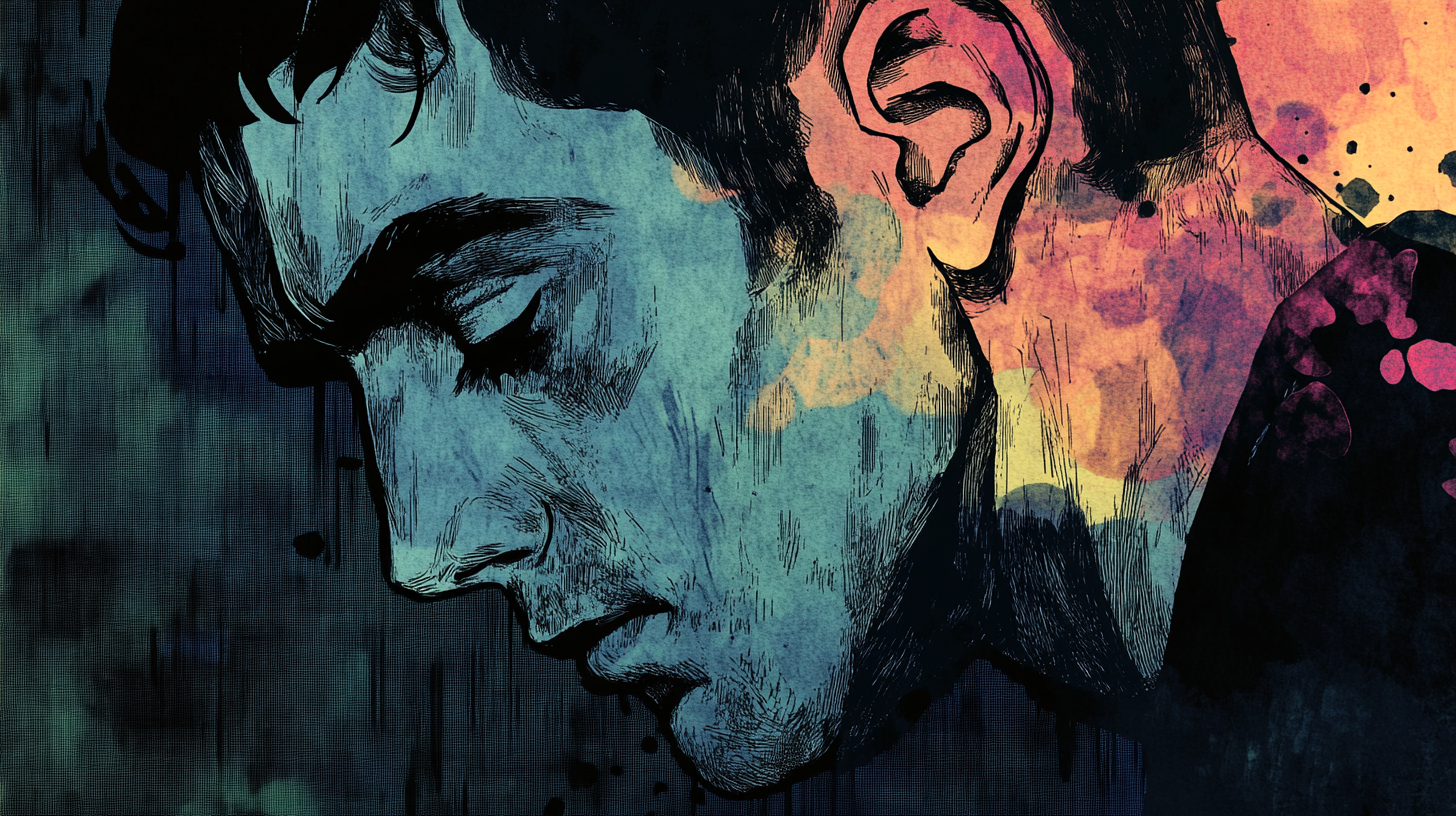
Some people don't repress their emotions - they just can't find them. That's alexithymia: a condition marked by difficulty identifying, describing, or even recognising your own feelings. It's not denial. It's not avoidance. It's more like staring at static and being asked to explain the picture.
Research suggests that alexithymia affects around 10% of the general population - but it shows up disproportionately in men. Why? Partly because boys are often socialised to externalise rather than introspect. From a young age, many are taught to prioritise action over reflection, doing over feeling. Crying gets shamed. Anger gets a pass.
Over time, emotional literacy doesn't just wither - it never gets built. As Dr. Ronald Levant, a leading researcher on male psychology, puts it: many men suffer from "normative male alexithymia," a culturally reinforced emotional deficit.

The consequences? Disconnection in relationships. Trouble regulating stress. A chronic sense of emptiness that doesn't quite rise to the level of depression - but never really lifts. And because alexithymia limits access to emotional data, it also limits access to healing. You can't work through what you can't name.
Alexithymia isn't a moral failure. It's a blind spot. And like any blind spot, the first step is knowing it's there. I see it all the time in my therapy room. Men, and women, sometimes try to explain it, but the words fail them. One client told me: "I look at my partner, hear her stories... and I don't feel proud. Not sad. Just empty."
Another described feeling "like a draft-I exist between walls, but I don't touch anything." These are real voices cut out by emotional flatness, and they're more common than you'd think. Statistics tell the rest of the story. Almost half of people taking antidepressants report emotional blunting. Men report it more often than women, but it’s not exclusively a male thing. In one study, the margins were smaller than you think: 52% of men reported numbness when describing their mood, versus 44% in women.
Even more alarming: in severely depressed patients, up to 60% on SSRIs experience blunted emotion and a whopping 35% stop treatment entirely because they can't feel anything, good or bad. But this isn't just a side effect. It bleeds into life. Men numb themselves to cope: with grief, guilt, loneliness - but sometimes the numbing becomes the coping.
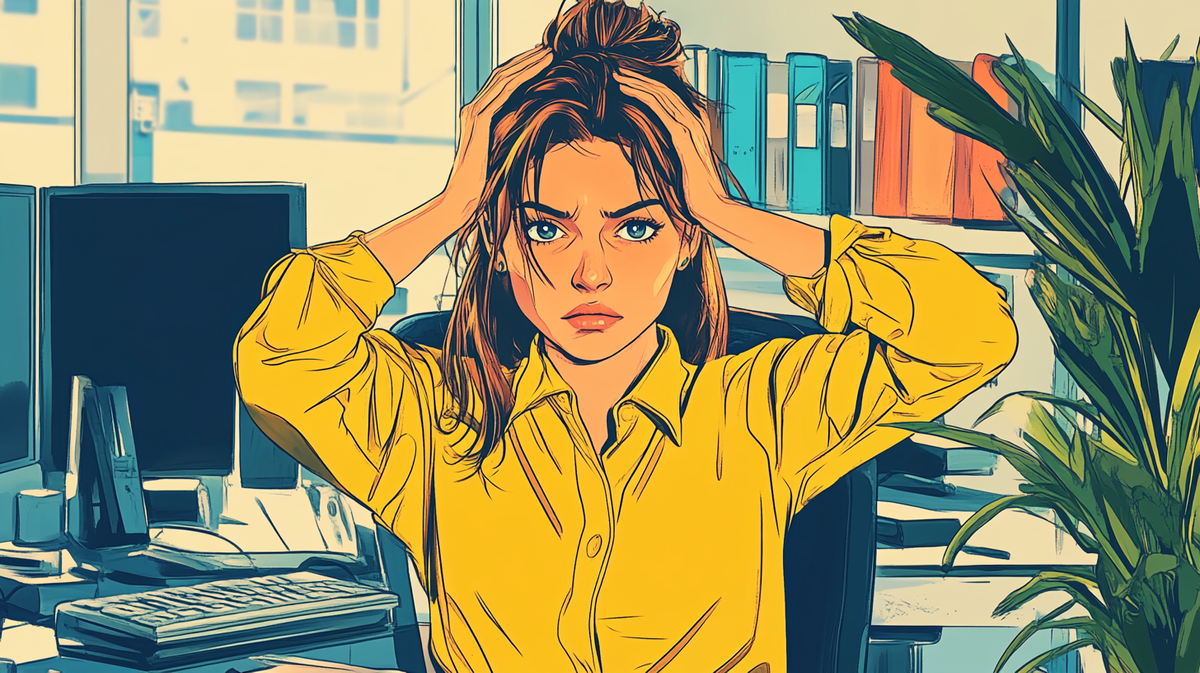
With no feeling, shame doesn't sting, anger doesn't flare, hope doesn't flicker. Numbness isn't absence; it's absence of absence. Quiet, empty danger.
Here's why it matters. Without emotion, there's no alarm bell. No shame to stop harmful choices. No celebration to fuel connections. And even worse: numbness often fuels silence. In men especially, the cultural cue says: don't feel, don't show, don't seek help. Turn off. Lock away. Move on.
That's why we must name it, and feel it, before it drifts too deep. Because sometimes, feeling nothing is the precursor to doing something irreversible. And even a faint flicker of feeling - sadness, joy, frustration - is still a signal. A signal that we're alive. And that we might still choose differently.
When numbness has nowhere else to go 😶
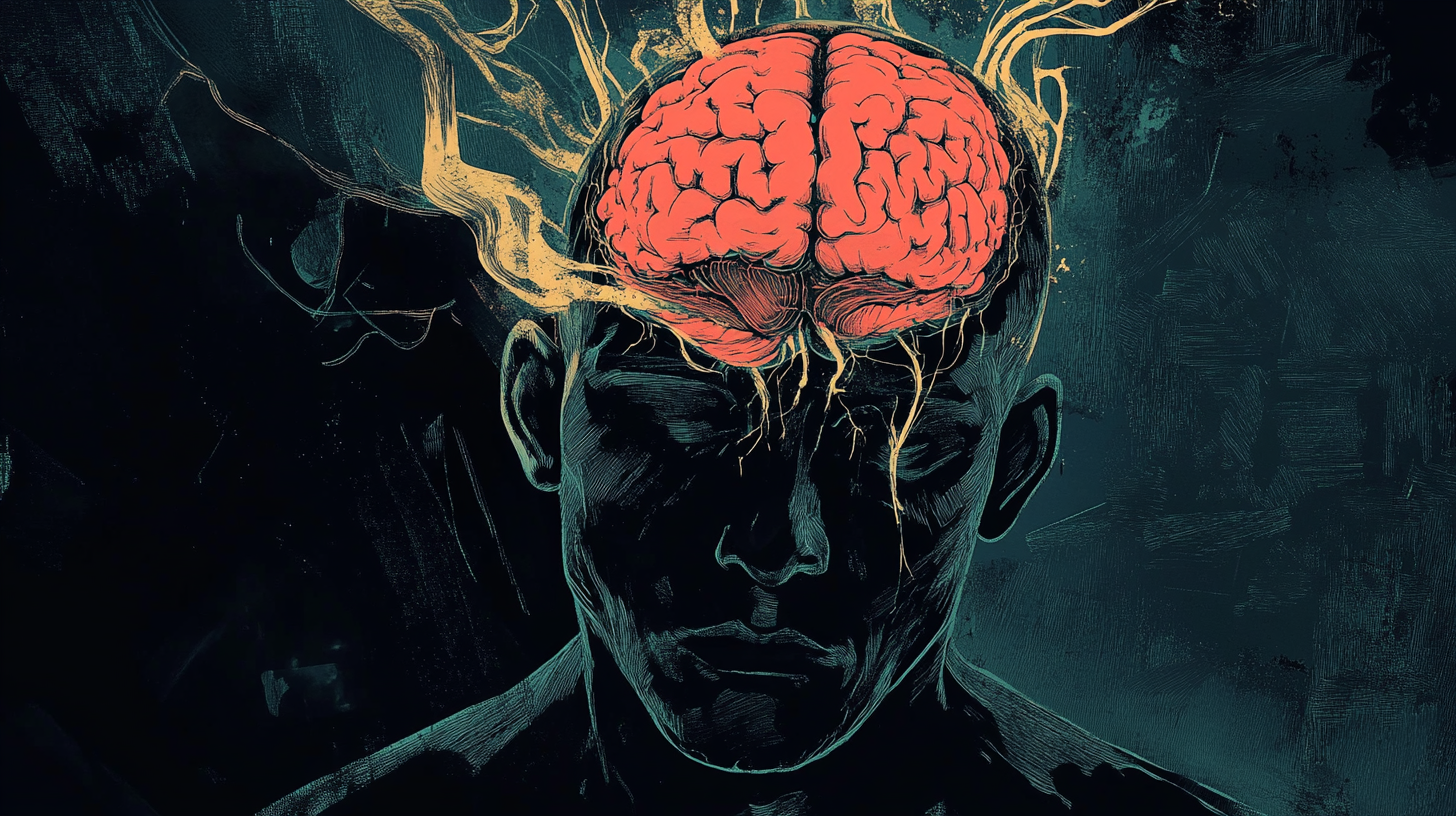
I wanted to understand what happens when numbness is left to calcify. When it becomes the default for so long that feelings, and the feelings of others no longer have an impact. Unsurprisingly, I didn’t have to look far. There are dozens of cases of violence where underneath the horrendous acts, lies a serene pool of nothingness.
Take Peter Kürten, the so-called "Vampire of Düsseldorf." Active in early 20th-century Germany, Kürten confessed to a string of brutal murders. During his trial, he offered no apology, only unsettling calm. "Never have I felt any misgivings in my soul," he said, adding that revisiting his crimes was not unpleasant but, in fact, pleasurable.
It wasn't just violence that defined Kürten - it was the emotional void behind it. Fast-forward to California, where convicted killer David Misch interrupted his own sentencing by singing "99 Bottles of Beer." No sorrow. No shame. Just a smirking detachment while grieving families looked on. Prosecutors pointed to it as a clear display of emotional absence of someone utterly untethered from the weight of what they'd done.
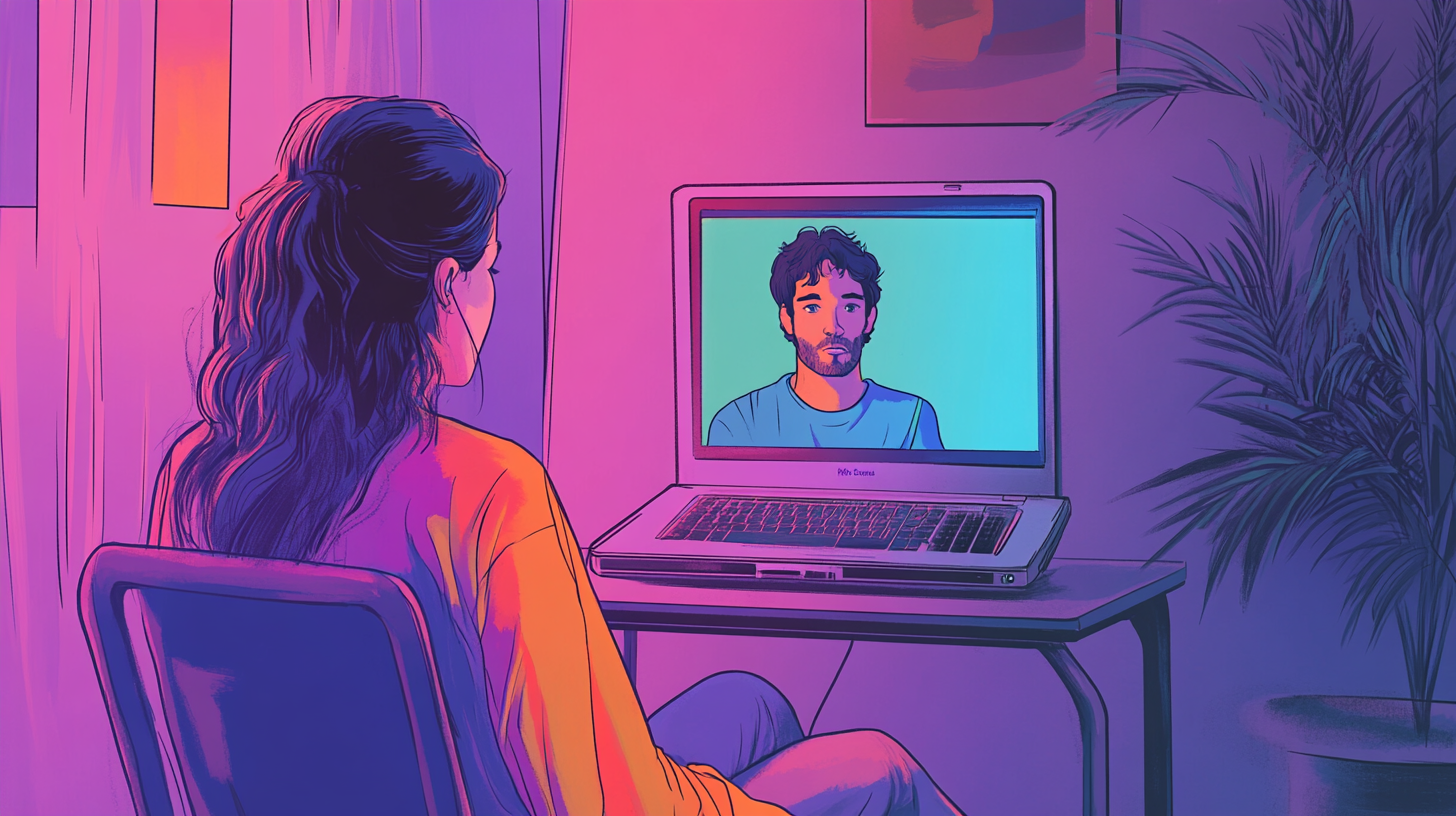
Then there's Dylann Roof, who murdered nine people in a Charleston church. Even as survivors and relatives pleaded with him in court, Roof was unmoved. "I still feel like I had to do it," he said, standing by his racist motivations. His lack of remorse wasn't a legal tactic, it was real. His numbness, palpable.
Or Kendall Francois, who killed eight women in Poughkeepsie, New York. In court, he laughed as the victims' families spoke. When asked why, he remarked that killing "seemed easier than getting into a relationship." What kind of disconnection must exist for intimacy to feel harder than murder?
And last, but certainly not least, there's Niels Högel, a German nurse who murdered at least 85 of his patients. Psychiatric assessments concluded he felt no guilt, no empathy - only the adrenaline and attention that came from orchestrating medical emergencies. For Högel, the hospital was a stage. The patients, props.
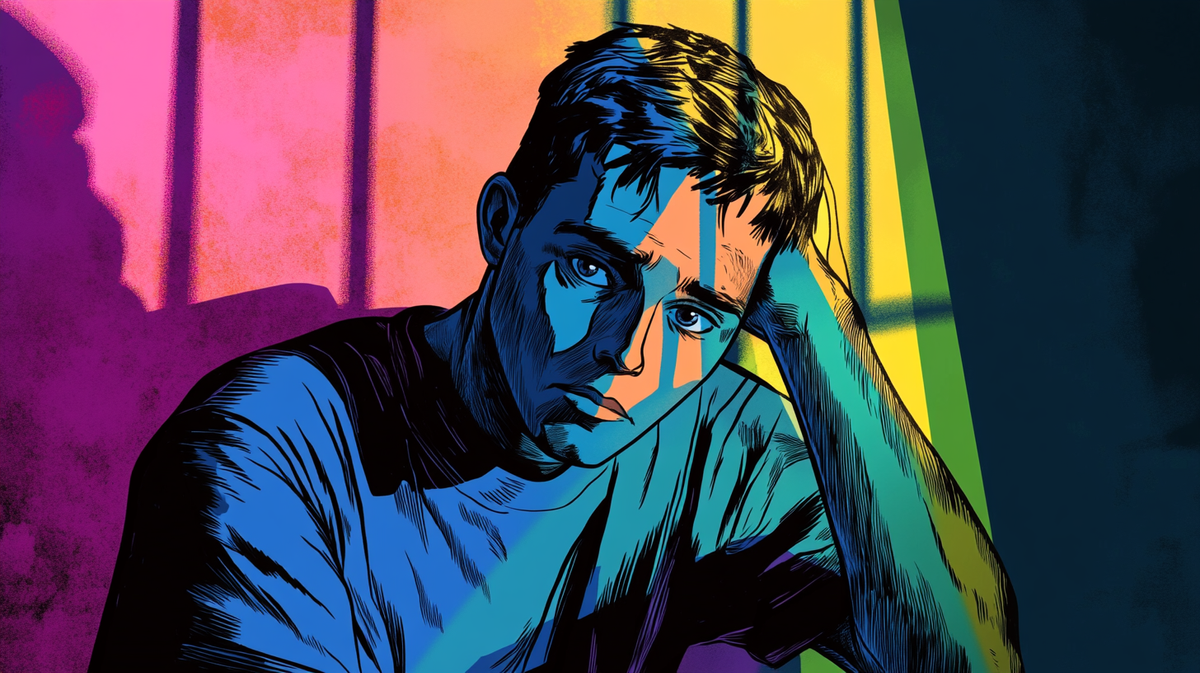
These aren't just stories of violence. They're portraits of what happens when the inner guardrails: remorse, guilt, and human connection vanish. Emotional numbness doesn't always lead to acts this extreme. But these cases show us what can unfold when nothing is felt and nothing is there to stop it.
This isn't about excusing violence. It's about understanding what can happen when feeling disappears - and why numbness isn't neutral. It can be the beginning of a disconnect so wide, it swallows consequence.
But how does someone get here? Numbness is a long road, but it always begins somewhere.
The Road to Numbness: How We Learn to Feel Nothing 🏃
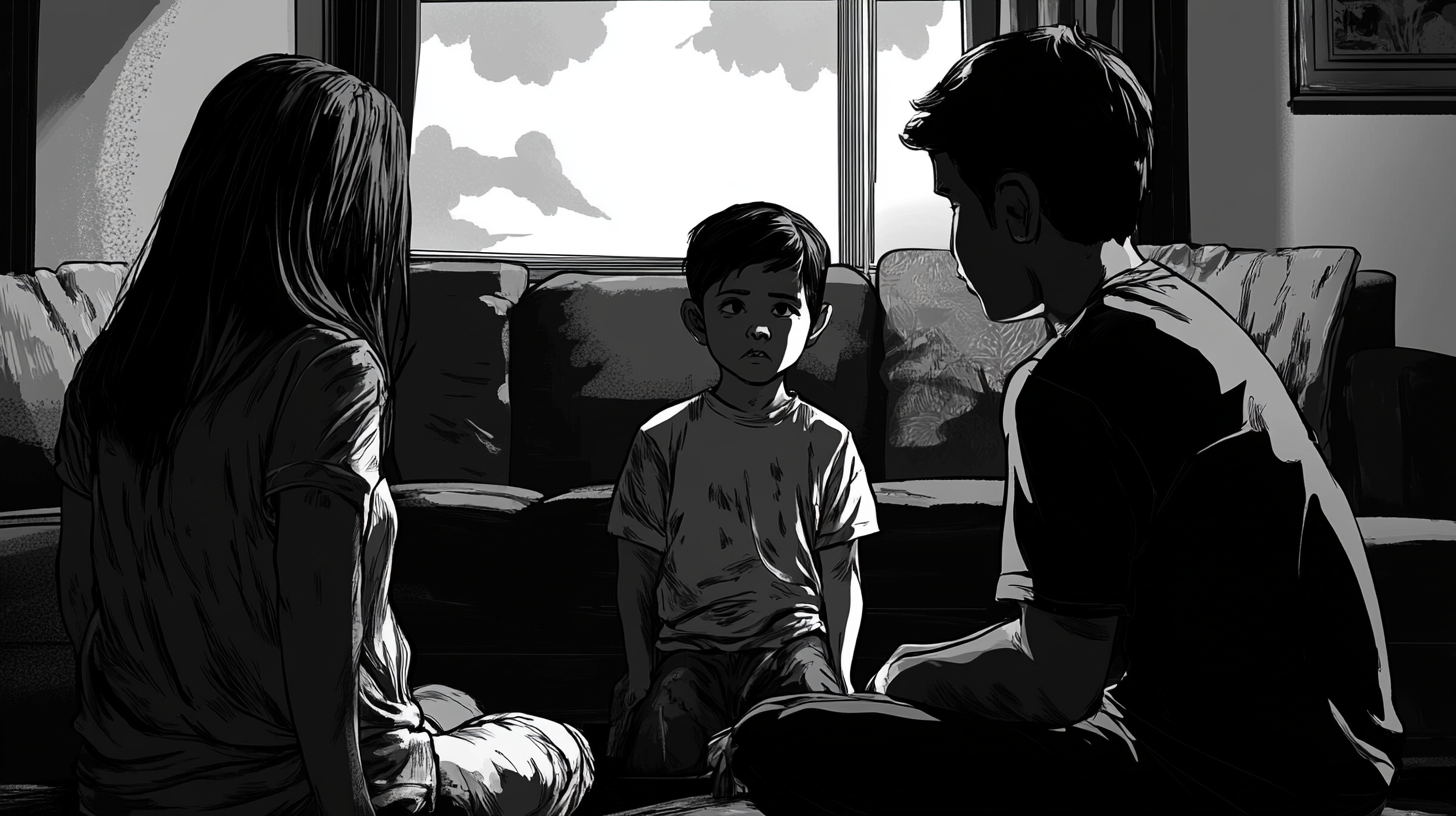
Numbness doesn't arrive overnight. It creeps in - a quiet survival strategy dressed as indifference. And at first, it works. For many, numbness starts not as a failure to feel, but as a refusal - a protective instinct in the face of too much. Too much rejection. Too much disappointment. Too much expectation to hold it all together. It begins with the body saying enough.
Shame is often the architect. The kind that isn't loud or explosive, but slow-dripping and ambient - not you did something bad, but you are something wrong. As Brené Brown notes, "Shame corrodes the very part of us that believes we are capable of change" - and when we're too ashamed to show sadness, anger, fear, or even hope, the system starts to shut down.
Emotional numbness is also deeply tied to safety - or the lack of it. When expression gets punished or ignored, when vulnerability is met with laughter or silence, the lesson is clear: Feeling is dangerous. As trauma therapist Janina Fisher writes, "We learn to survive not by feeling, but by disconnecting." In childhood especially, the absence of a secure, attuned relationship can shape emotional withdrawal as a default setting.
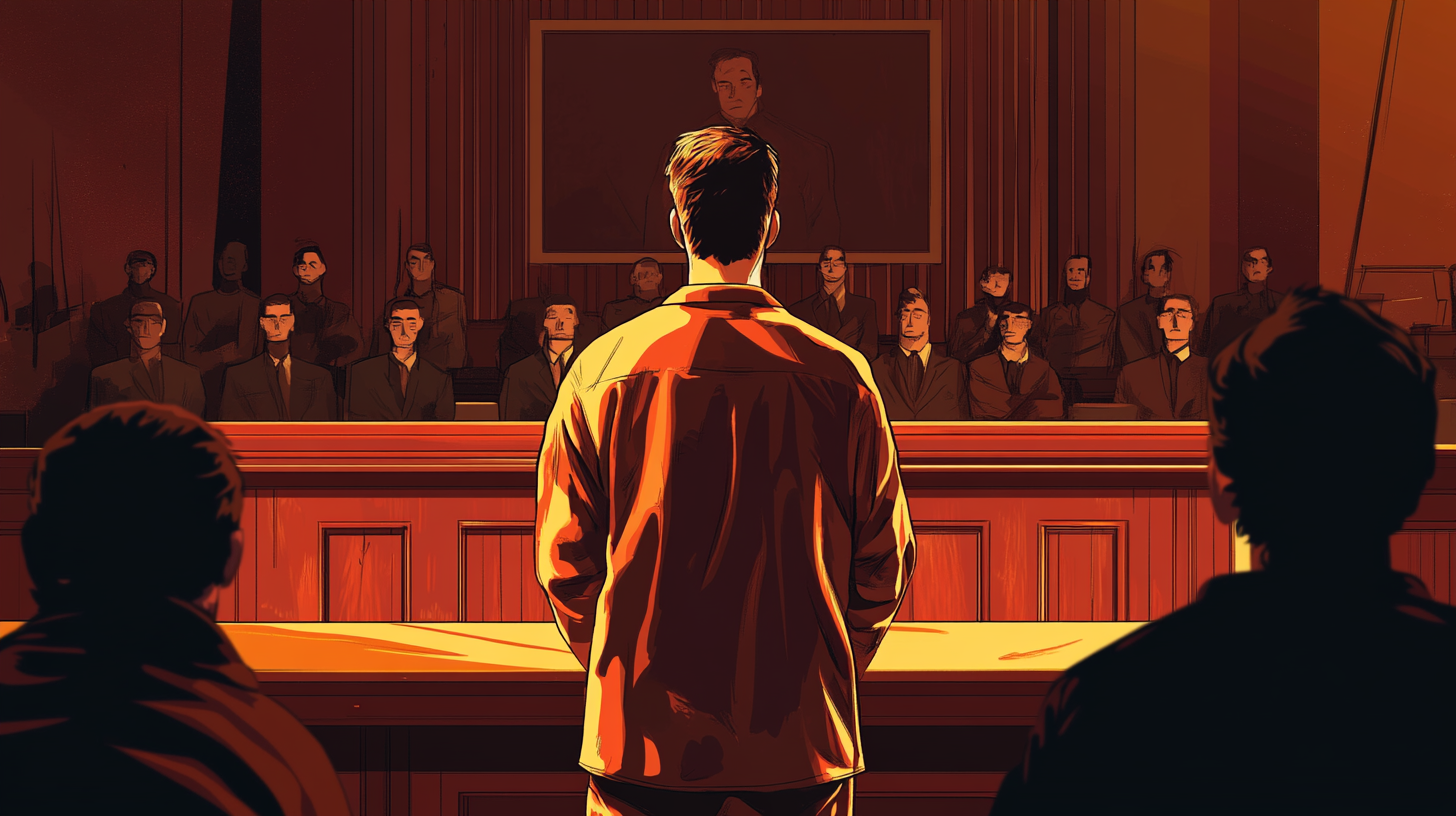
For some, numbness is what follows grief that has no place to land. For others, it's the final form of burnout - when even feeling anxious would require too much energy. In the male experience especially, the road is paved with reward for repression. Be strong. Don't be dramatic. Keep your shit together. We teach boys early that emotion is a liability, then act surprised when men disappear into themselves.
But here's the trap: what starts as refuge becomes a prison. The stillness that once felt like relief starts to feel like absence. Life becomes muted. Food loses flavour. Music becomes background noise.
Relationships slide into autopilot. You're not in crisis - you're just not in it at all. And that, paradoxically, can be harder to spot. Clients in therapy often describe this moment not with drama, but with a kind of quiet confusion. "I don't know what I feel." "I should be sad, but I'm not." "It's like I'm watching my life from the outside." These aren't poetic flourishes - they're flatline reports from people who've lived too long without emotional oxygen.
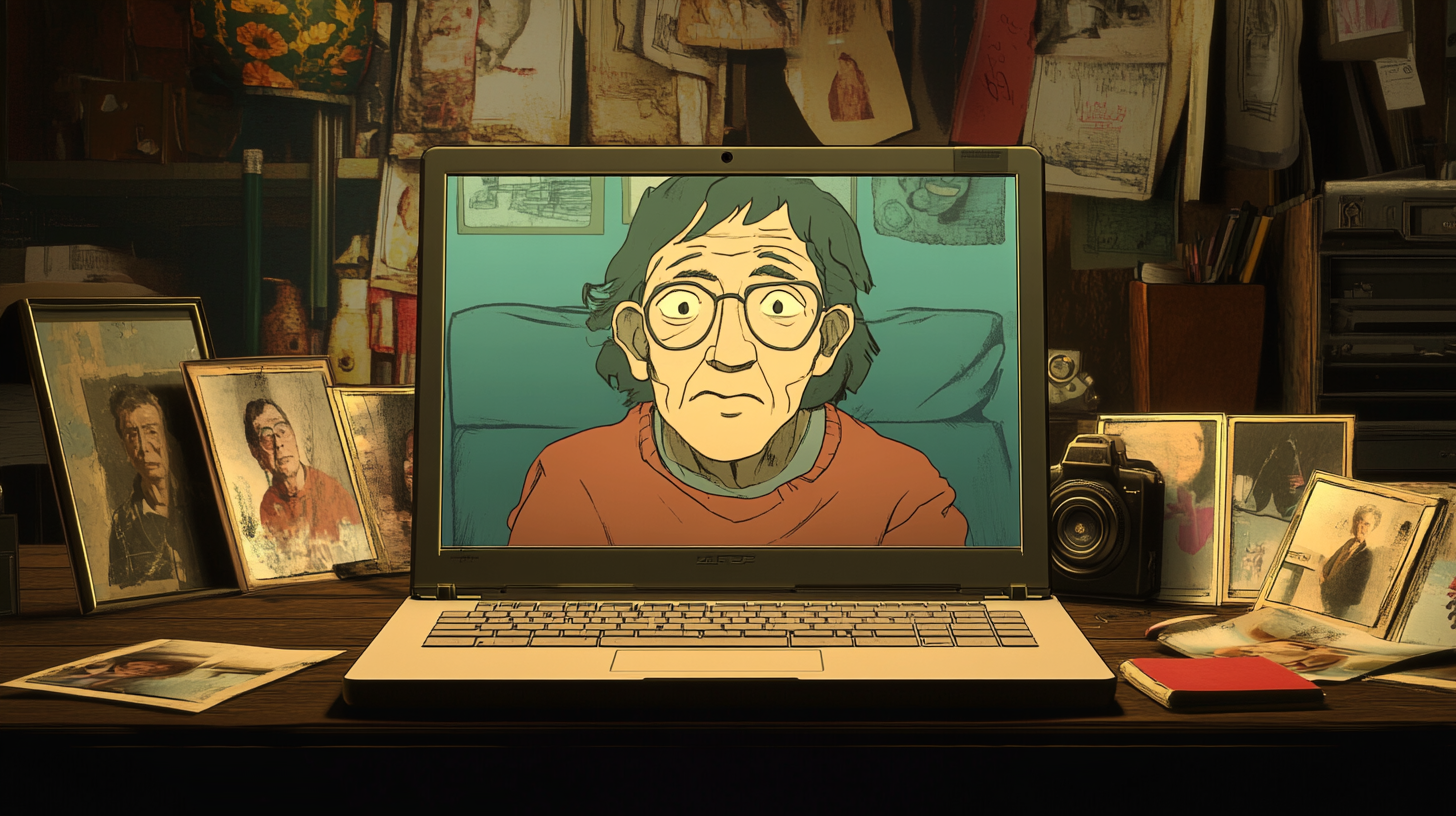
And yet, numbness is rarely met with urgency. It's invisible. It's not disruptive. It doesn't cry or shout or get rushed to A&E. But it is serious. Because when you feel nothing, you stop reaching. And when you stop reaching, you drift. From others. From your body. From your own aliveness.
Understanding how numbness begins is crucial - not just to spot it in others, but to recognise it in ourselves. It is not weakness. It is not failure. It is a nervous system doing its job too well, for too long. But if we can trace the steps that took us there, we can start to walk our way back.
Finding Our Way Back: Returning to Feeling, Connection & Self 😊
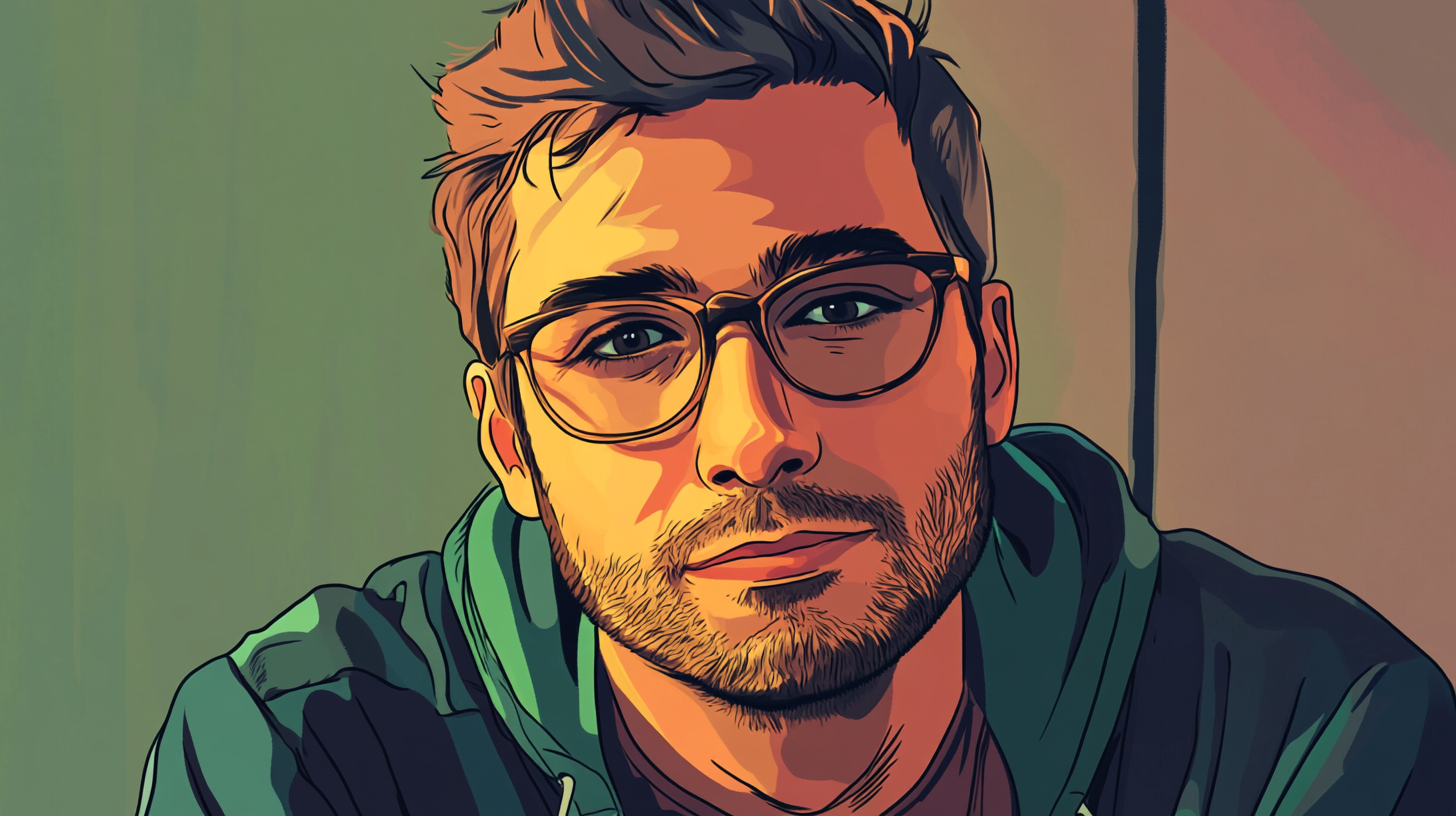
Numbness isn't a cozy refuge - it's a dead end. When feelings become too painful or too much to navigate, our brains can shut the door entirely. What begins as a protective "pause" morphs into a prison: one without bars, but with walls we can't climb. And inside? We're surviving, not living.
Coming back from emotional numbness is hard. It isn't a sprint or a download-it's a gradual exploration. Relearning how to notice your heartbeat in a conversation. Remembering what laughter feels like. Rebuilding trust that feelings won't annihilate you. It's slow. It's tentative. But it's possible.
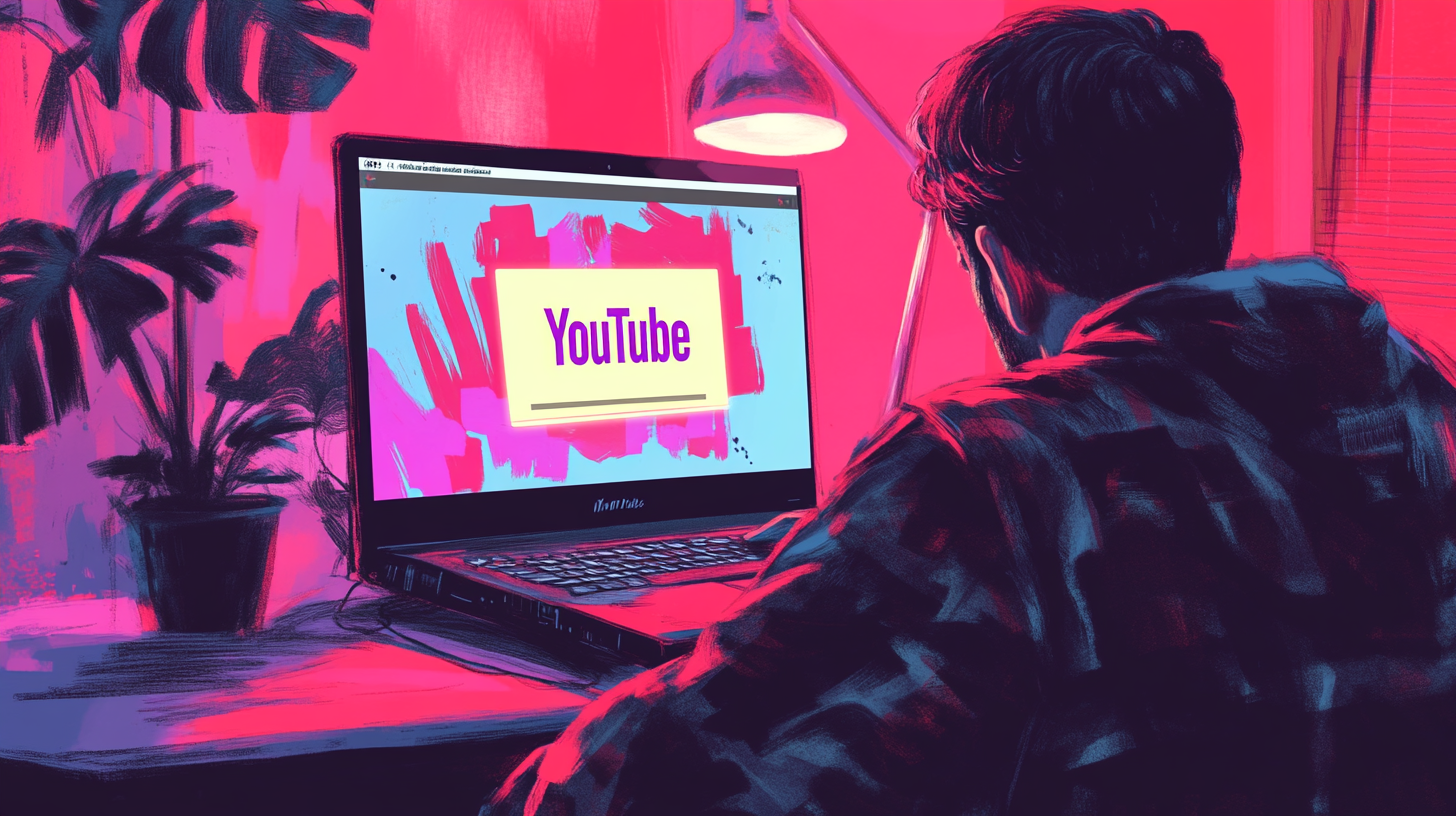
Numbness takes away guilt, but it also erases the compass that makes us human - the signals that warn us when we cross a line, help us apologise, love, and care. Without them, our sense of right and wrong doesn't erode - it evaporates. That numbness doesn't save us, it consumes us. But there’s always a path back, even if that path has overgrown and barely visible.
In a quick scrape of the literature I found, here’s what comes up:
- Peer groups and therapy: Finding even one person who gets it - someone who's been lost in the same fog - is restorative. Groups like Emotions Anonymous or trauma-informed recovery circles remind you: you're not broken. You're human. And somewhere within the silence, other voices are quietly calling you back
- Grounding rituals: Micro-habits-daily journaling, a few minutes of guided mindfulness, creative expression - are bolts in the scaffolding of self. They anchor you to feeling, gradually reclaiming what was lost.
- Somatic reconnection: Movement, breathwork, stretching, dance, running, boxing, anything that puts you back in your body. They don't just activate muscles - they wake pixels in your emotional software that you forgot existed.
- Reflective support tools: Emotion workbooks and guided digital toolkits - I’m working on this at the moment. It’s called Feel Again Toolkit and it’s designed to help you translate what feels unsayable - numbness into narrative, disconnection into discovery. I’ll be developing this on my instagram account, so head there for more.
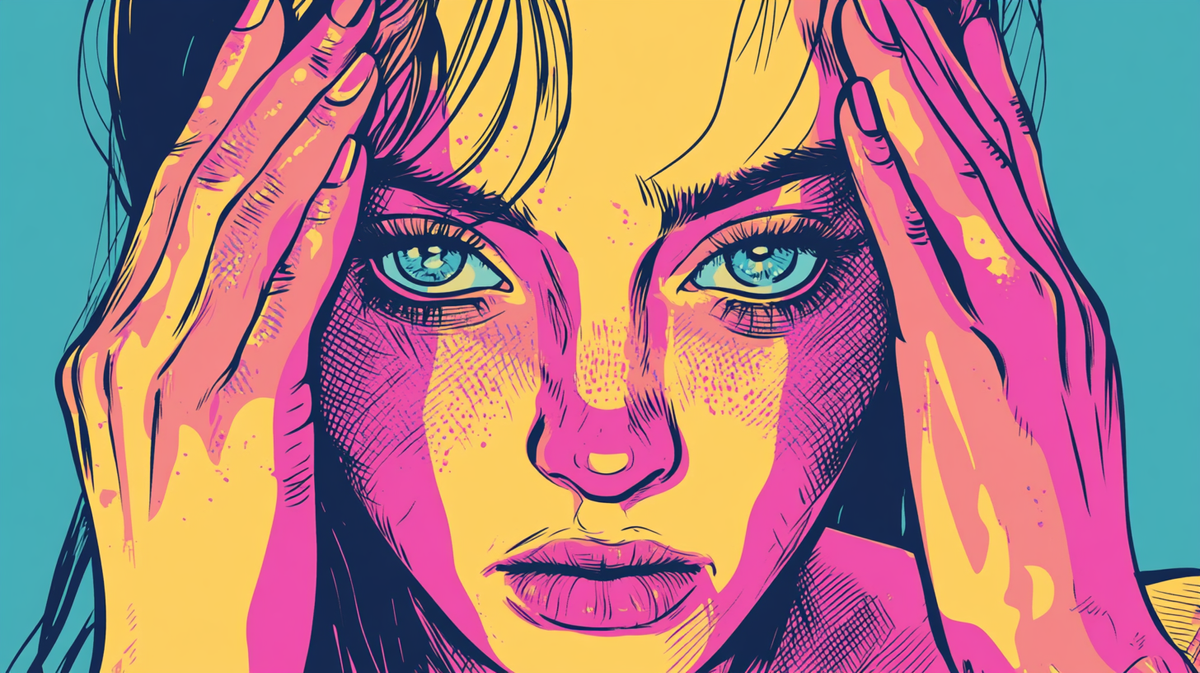
For anyone reading this, you may start to feel a voice grow louder inside your head at this point. That voice is saying, why even talk about it? Why poke at a wound that doesn't scream? Numbness, after all, is quiet. It doesn't disrupt meetings. It doesn't shout in the streets. It gets up, goes to work, replies "not bad" when asked, and mostly stays out of trouble. In a world that constantly pushes us to do more, numbness can feel like a compromise worth making: a safe distance from the chaos of feeling. No highs, sure-but no real crashes either.
But here's the truth. Numbness doesn't keep you safe. It keeps you stuck. It's not the absence of pain - it's the absence of movement or direction. And the longer you live in that freeze, the further you drift from the things that actually make life worth enduring: connection, aliveness, purpose, joy. The things numbness quietly erodes while pretending to protect.
So yes, feeling again might mean bleeding a little. But staying numb means you stop growing, stop reaching, stop being fully here. And that, in the long run, is the costliest trade of all.
You're Not Broken - You're Stuck in Survival Mode 😮💨

Emotional numbness is not your identity. It's a strategy your brain borrowed when the world became too loud, too fast, too much. But survival doesn't mean thriving. It just means you didn't die from the weather. And while that's worthy of respect, it isn't enough.
Healing isn't about flipping a switch. There's no finish line. There's just a path back - a path that curves through discomfort and confusion before opening into clarity. And yes, there are dead ends. Days when the numbness feels easier than showing up again. But each step - especially the hardest ones - is a signal you can feel again.
If you're ready to start building this path back - to feeling the warmth in a laugh, the sting in a tear, the quiet torque of your own heartbeat - you're not starting from scratch. You're starting from survival. And that's not nothing - it's everything.
Things we learned this week 🤓
- 😵💫 Working long hours can physically alter your brain.
- 😍 Are you a despot seeking power? Convince people the world is falling apart, and they’ll follow you, says study.
- 📲 In case it wasn’t obvious: too much screen time causes behavioural problems in children.
- 🍔 IBS and ADHD go hand in hand, says study.
Just a list of proper mental health services I always recommend 💡
Here is a list of excellent mental health services that are vetted and regulated that I share with the therapists I teach:
- 👨👨👦👦 Peer Support Groups - good relationships are one of the quickest ways to improve wellbeing. Rethink Mental Illness has a database of peer support groups across the UK.
- 📝 Samaritans Directory - the Samaritans, so often overlooked for the work they do, has a directory of organisations that specialise in different forms of distress. From abuse to sexual identity, this is a great place to start if you’re looking for specific forms of help.
- 💓 Hubofhope - A brilliant resource. Simply put in your postcode and it lists all the mental health services in your local area.
I love you all. 💋












